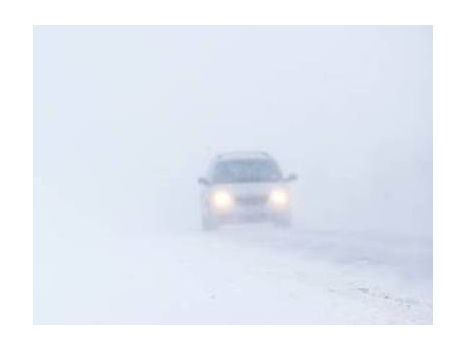From Farm To Inner City, There’s Agreement: AM Needs To Stay Put In Dashboards.
- Inside Audio Marketing

- Dec 12, 2024
- 3 min read

Rural America has been sending a loud and clear message to Washington in support of keeping AM radio in dashboards. However, AM is just as important in the big cities, according to the National Urban League. The group has sent a letter to congressional leadership to pass the bipartisan bill that would require carmakers to feature AM in vehicles and that it be sent to the President’s desk before the end of the 118th Congress.
“AM radio is a lifeline for local communities, including the predominately African-American and underserved communities. It plays a vital role in providing underserved communities with reliable news, entertainment, sports, and information in critical times of emergency,” National Urban League President/CEO Marc Morial says. “There are over 100 Black-owned radio stations that would be impacted if AM radios were removed from vehicles. Those radio stations not only provide a voice for Black America, but serve as a source of opportunity, creativity and ownership for marginalized communities.”
The call to action comes as supporters hope to get the proposed AM Radio for Every Vehicle Act (H.R. 8449/S. 1669) before the end of the lame duck session. Support has continued to build this month, as the House bill has now been co-sponsored by 271 lawmakers, while in the Senate, 63 members are supporting the bill.
If passed, the proposed AM Radio for Every Vehicle Act (H.R. 8449) will require the Secretary of Transportation to issue a rule requiring access to AM broadcast stations in motor vehicles. If they don’t, carmakers could be fined. Before the effective date of the rule, manufacturers who do not include AM would be required to put a warning label on vehicles. And carmakers would be prohibited from charging extra for AM.
Under the latest version of the bill, automakers would have at least two years to comply with the rule, although some manufacturers that produce fewer than 40,000 passenger cars for sale in the U.S. would have at least four years to meet the requirement.
The broad bipartisan support in Congress for the bills is also reflected in the coalition of groups that have advocated for their passage. A coalition of 25 agricultural groups, along with groups like the American Farm Bureau Federation and the National Farmers Union, are among the rural-focused organizations that have pushed automakers to keep AM in vehicles.
While many rural and ag groups focus on signal reach, the National Urban League also points to the reach of radio for why it says AM needs to stay put in cars and trucks. Morial points out that AM often has deeper reach into non-English-speaking communities, pointing out that there are over 600 AM stations that broadcast content in a language other than English. Morial says AM also helps connect with Americans who have a strong focus on religious programming. But the National Urban League says the communities it represents also have a lot in common with rural communities when it comes to AM.
“In rural and urban areas in which there are broadband deserts, AM radio is a link to cultural content that allows these communities to maintain their connections,” says Morial. He says AM is also a provider of trustworthy information before, during and after hurricanes and other natural disasters strike.
“AM radio is central to our ability to reach all Americans across the spectrum,” Morial says. “That is why NUL stands with the over 125 organizations representing minority and underserved communities, first responders, public safety officials, local governments, older Americans, religious voices and rural and agricultural communities, advocating for this important piece of legislation to be enacted before the start of next Congress.”
While Congress is focused on just a few items during its lame duck, including approving more federal judges, the National Association of Broadcasters has said that one option for the AM bill would be to get it attached to a must-pass government funding bill, such as President Biden’s $100 billion request to Congress for disaster relief efforts, or an outstanding defense spending bill.




Comments